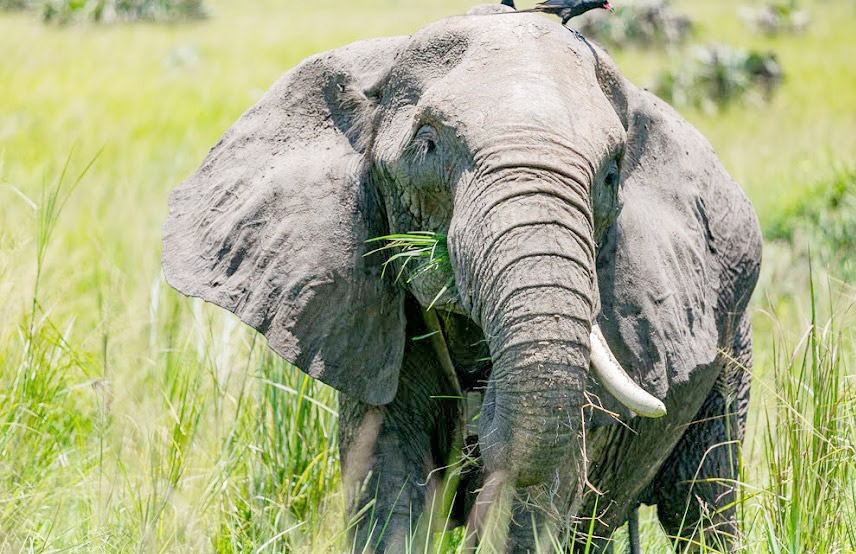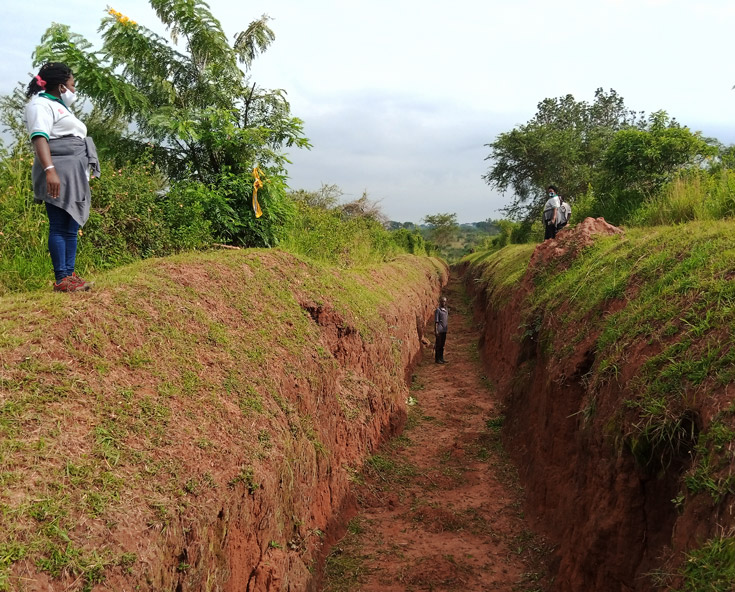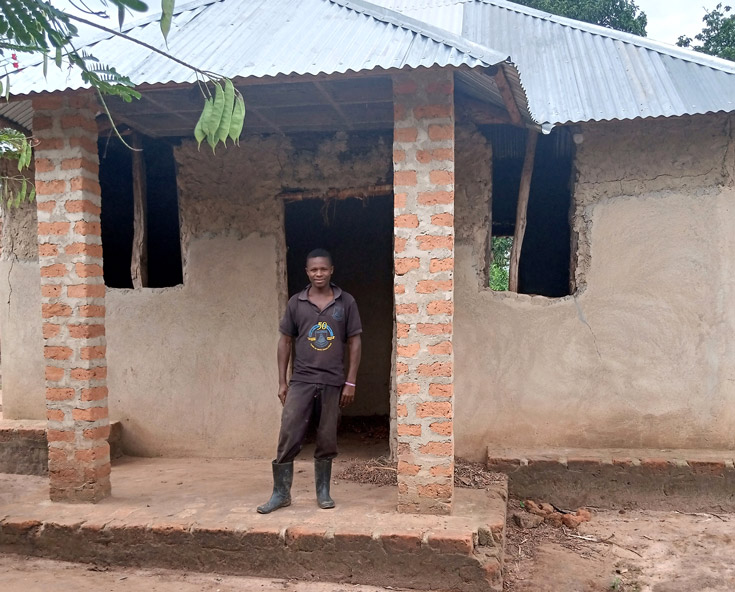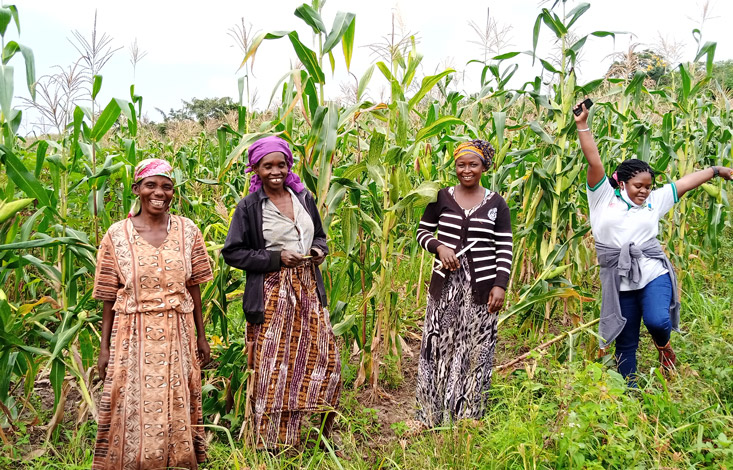
Karegyesa Deo (40 years) is a subsistence farmer and wildlife conservationist. He lives with his extended family (his wife, 10 children, five grandchildren and three daughters-in-law) in Nyanga Subcounty that is adjacent to Queen Elizabeth National Park (QENP). This is a wildlife protected area without any physical barriers enabling herbivorous wildlife species including elephants, hippopotamus and wild pigs to freely cross into the community to raid their crops. A mere mention of elephants in this community, raises back hairs due to the psychological torture, sleepless nights, mosquito bites, human injury and loss of freedom to move freely in their village, associated with this huge towering wild beast weighing over 2,000 kilograms.
Strengthening communal crop-guarding methods to prevent elephant raids
In order to secure enough food for his extended family and provide protection for his loved ones, Deo started maintaining one km of a-22 km long elephant trench previously excavated by Uganda Conservation Foundation. Unfortunately, 21 km remained unattended to, and became easy crossways for elephants into the community. As a result, elephants continued to raid crop gardens of maize, cassava, potato, banana, watermelon, tomatoes and jackfruit – their most preferred loot!
With no absolute solution, many communities abandoned their farming land; while others like Deo continued to brave the raids by guarding their gardens during the day and night to fend off elephants. “We would stay alert during the day and awake at night to chase away animals by banging jerricans to scare them away and burning chilies whose pungent smell would drive them away. However, many times we put our lives and that of our children in danger, especially when elephants arrive undetected,” says Deo.
In 2017, Wildlife Conservation Society (WCS) in collaboration with Uganda Wildlife Authority (UWA) and with funding from Lion Recovery Fund (LRF), trained community scouts to sensitize communities about conservation of wildlife by excavating and maintaining elephant trenches to prevent raiding of crops, retaliatory killing of elephants, and prevent communities from moving into the National Park to graze cattle. The objective was very clear, keep the elephants inside the park and the community outside the park.
Partnering with communities to maintain elephant trenches and conserve wildlife

Eight scouts, including Deo were hired to constantly sensitize communities about encroachment and illegal grazing in national parks that is prohibited by law, to promote wildlife conservation and acceptance of wildlife protection interventions as well as render support to UWA to manage and conserve wildlife in QENP. The community scouts who have become prominent conservationists in their communities, supervise 70 trench workers who maintain 22 km of elephant trench, using a hoe and spade by removing silt and maintaining the standard depth that prevents elephants from crossing to communities. “The elephant trench need to be maintained throughout the year by removing silt, which elephants take advantage of, to create sneaky pathways into the community,” says Carol Twahebwa, WCS Community Liaison Officer
Inspiring communities to value wildlife
The widespread community acceptance and effectiveness of this initiative has motivated Kikarara Environmental Conservation and Protection Association (KEPA), a community-based organization with a membership 22 people of ages between 26-69 years to voluntarily escavate and maintain four km of elephant trench in Bwambara Community bordering QENP to protect their crops. “Without this trench, numerous animals were crossing into the community and raiding our crops. This had contributed to high school drop-outs in our community because we were unable to finance our children’s education. Many of us are school-drop outs for the same reason, and we do not want history to repeat itself,” says Humble Kabagambe, one of the pioneers of the organization.
Improving food security and livelihoods for communities
“The trenches have sustained our livelihoods, says Deo. From their monthly scout wage of $42 USD, Deo and his two sons have been able to construct permanent houses; purchase land to grow coffee that is unpalatable to elephants. Some of the other unpalatable crops that the scouts have encouraged communities to grow include sesame, sorghum, green pepper and onions.

All the scouts and trench workers have been able to buy goats that they rear and house them in WCS-supported carnivore-proof model pens – a venture that they are also promoting in the communities to reduce livestock depredation by lions and other carnivores.
Deo and community members are no longer afraid to grow maize, bananas, sweet potatoes, green vegetables, oranges, guavas and mangoes, which has created a steady food supply for their families for three consecutive harvesting seasons.
WCS interventions built on indigenous technical knowledge, and use of locally available technologies have brought smiles to the communities and has inspired them to value wildlife.
